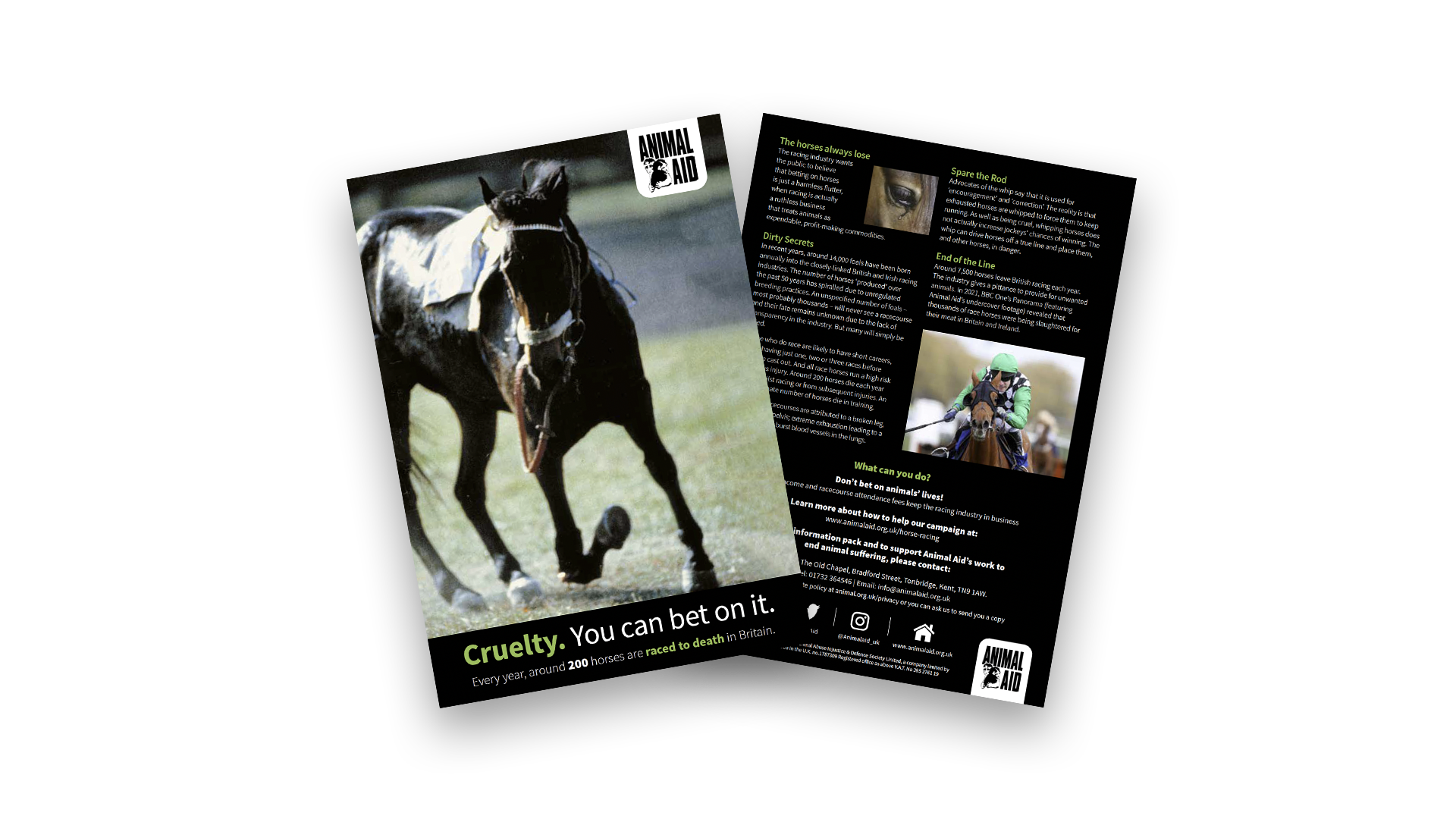
This is our general campaign leaflet for the issue of horse racing, which covers the numerous ways in which the racing industry exploits and harms horses.
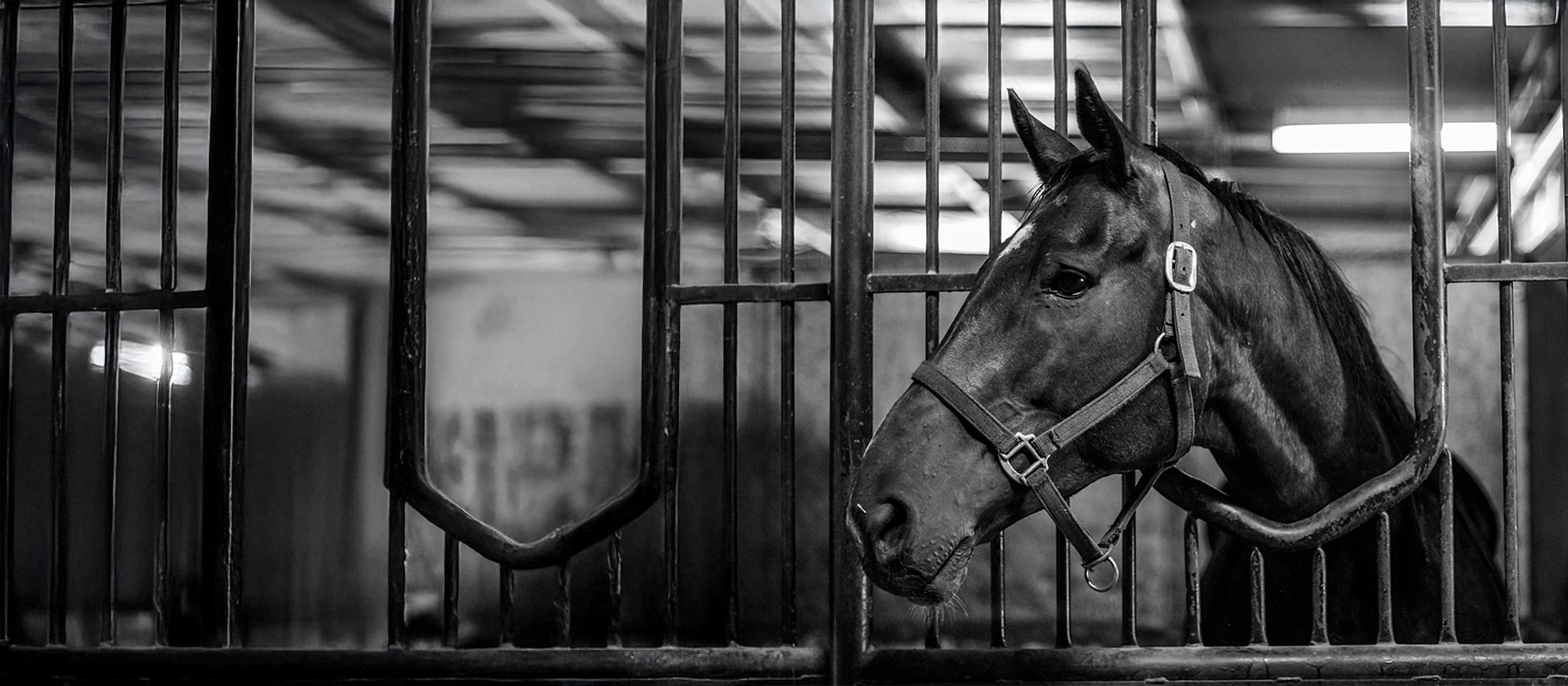
We've spent over twenty years exposing the reality of this heavily romanticised ‘sport’, successfully changing both public perception and media coverage - but we're not stopping there.
Animal Aid campaigns to end all racing of horses. The industry is cruel and exploitative, and fails to take care of its horses. We’ve spent over twenty years exposing the reality of this heavily romanticised ‘sport’, successfully changing both public perception and media coverage.
Our campaign to end all racing of horses also seeks to establish an independent regulatory body so that the industry can no longer police itself. We also want to see an end to dangerous ‘jump’ racing, including the infamous Grand National, and a ban on using the whip.
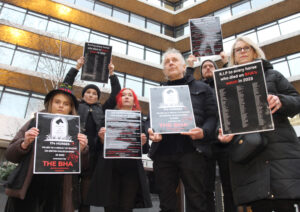
One of the best-known elements of our campaign against the racing of horses, is our Death Watch website. Launched in 2007, after nine horses died during Cheltenham the previous year, its purpose is to expose and record every on-course thoroughbred fatality in Britain. We try to record every life lost but the nature of the industry means the true numbers are considerably higher.
Animal Aid has uncovered the stark reality for horses and ponies who are no longer wanted in our society. Between October 2019 and February 2020, we filmed inside a UK abattoir that slaughters horses. The majority of the horses were killed for meat, destined to be sold for human consumption abroad.
In 2024, 598 horses with racing industry passports were sent to slaughter in England. Of these, 308 were just 5 years old or younger.
Animal Aid’s campaign to ban jump racing was launched in March 2023 in a bid to highlight the disproportionate danger of jumps to the lives and welfare of horses forced to race. Since 2001, more than 3,000 horses have been killed in jump races in Great Britain.
Jump racing events are heavily promoted in the media, which helps to normalise routine cruelty to horses (such as using the whip), while failing to present comprehensive information relating to horse deaths and injuries. Two examples are Cheltenham, which takes place every March, and the Grand National, which happens each year in April.
The Grand National is a deliberately hazardous race. Since 2000, 67 horses have died on the Grand National track. Cheltenham is the second most dangerous course in Britain. In 2018 ten horses died, seven of whom were killed during the 4-day festival itself.
Despite these deaths, the festivals continue to attract crowds each year.
Horses are the only animals who are legally allowed to be beaten in public for entertainment. The industry claims that whips are used for safety or behaviour correction. But the majority of beatings are administered in the final stages of a race when jockeys are desperate to win – an unlikely coincidence.
Current rules are supposed to limit the number of times a jockey can whip their horse: six during a flat race, seven during jump races. Yet jockeys receive minimal punishment (a short suspension or perhaps a fine), meaning the rules are not fit for purpose. In 2022 the winner of the Grand National broke whip rules but still won the £500,000 prize, around £50,000 of which was his to take home. For breaking whip rules, he was fined £400 and given a 9-day ban despite retiring after the race.
In 2018 an opinion poll found 83% of respondents opposed the use of the whip in racing. By 2022, this figure had risen to 89%.
‘Ladies Days’ are events across the racing calendar with roots going back to the 19th century. Today, these events are seen as opportunities for women to gather with friends, ‘dress to impress’ and enjoy a day out.
Ironically, hidden from view is the large-scale suffering of female horses who are exploited in their thousands.
The British Horseracing Authority (BHA) is currently responsible for the welfare of horses made to race, but the number of on-course fatalities remains steady – around 200 each year – and horses are still being beaten with whips.
In 2018 a parliamentary debate was sparked by a government petition that called for the BHA to be stripped of its responsibility and replaced by a body of independent professionals who would hold the industry to account. The petition reached more than 105,000 signatures.
In response, the racing industry set up its own welfare body – but it has failed to make any meaningful improvements. We continue to campaign for government intervention.
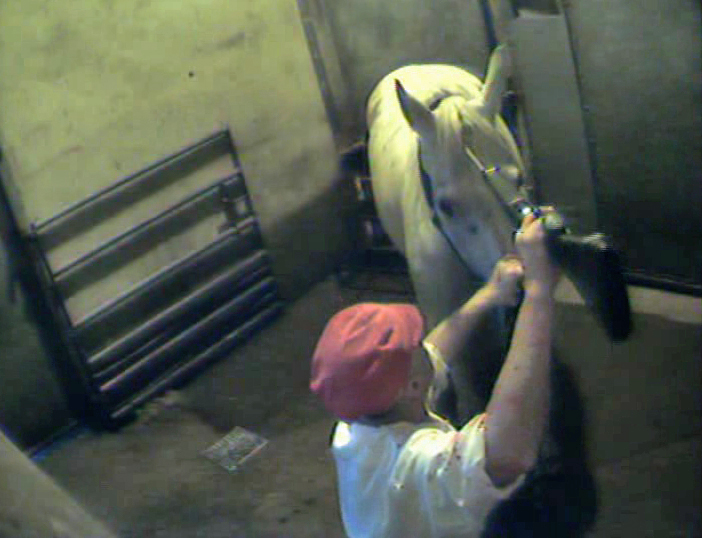
No animal should suffer for sport. It’s time to end the racing of horses and other animals exploited in the name of entertainment.

This is our general campaign leaflet for the issue of horse racing, which covers the numerous ways in which the racing industry exploits and harms horses.
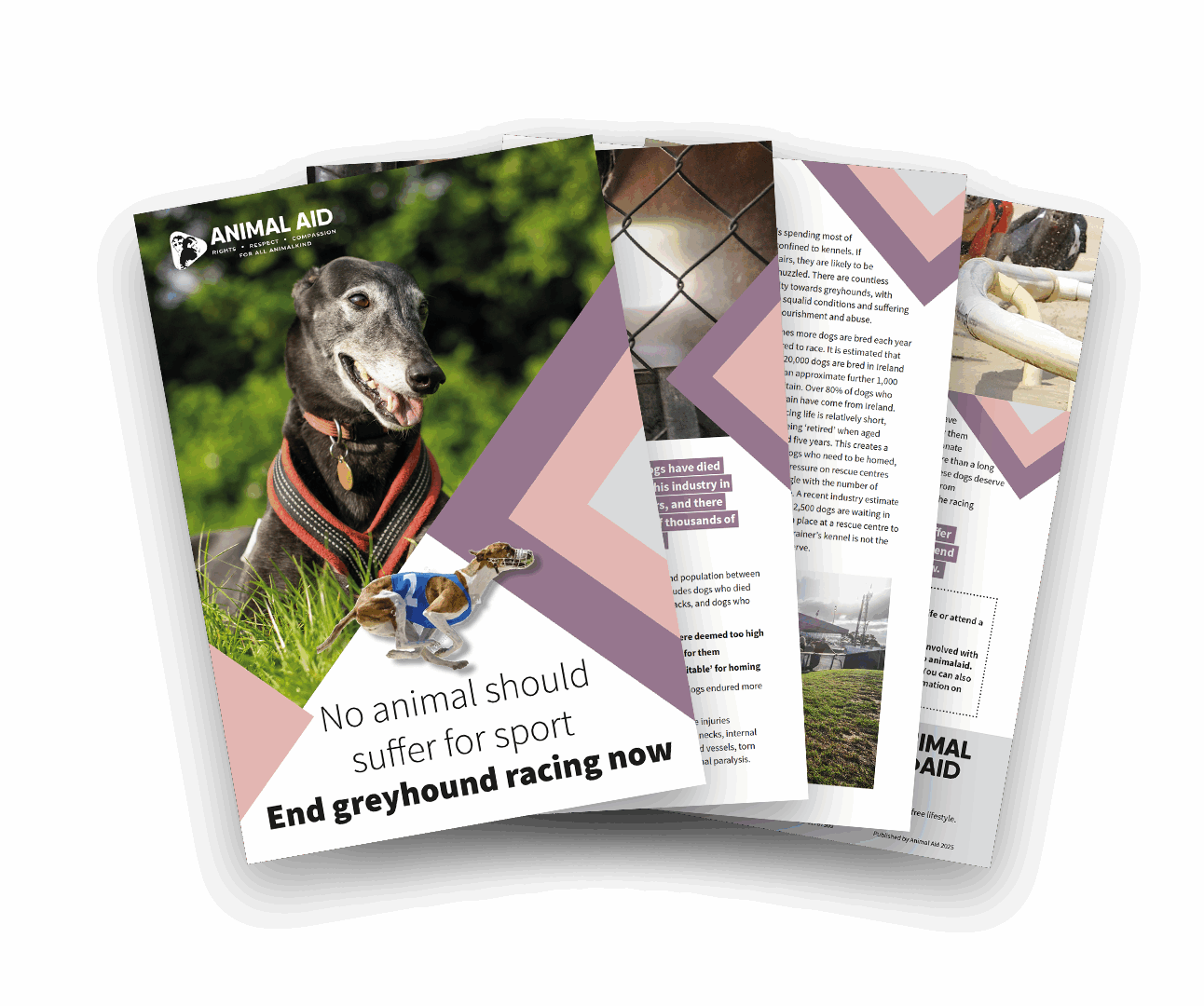
This leaflet offers a detailed overview of the problems with the greyhound racing industry, including the ways that you can help at home.
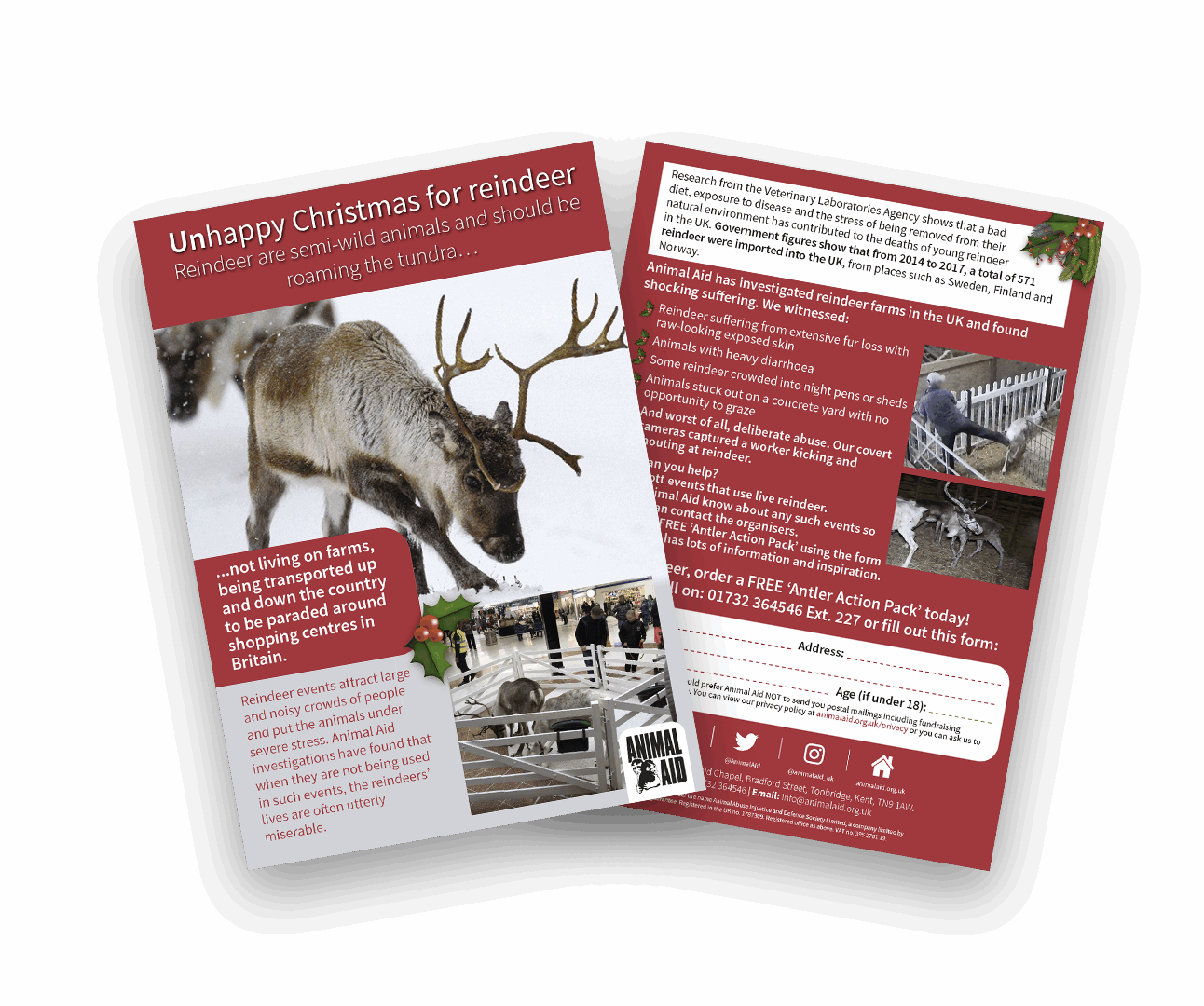
An overview of why reindeer and other live animals should never be used for displays, parades, or other festive events.